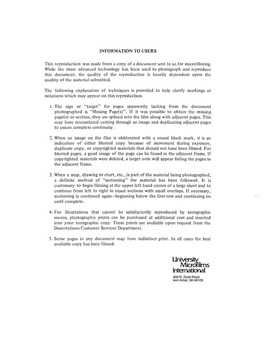| dc.contributor.author | Gipson, Michael H., | en_US |
| dc.date.accessioned | 2013-08-16T12:29:18Z | |
| dc.date.available | 2013-08-16T12:29:18Z | |
| dc.date.issued | 1984 | en_US |
| dc.identifier.uri | https://hdl.handle.net/11244/5305 | |
| dc.description.abstract | One hundred fifty college general biology students were taught a unit in Mendelian genetics by a traditional lecture method, using the Punnett square model for all practice problems. Students were given a unit test and, eight weeks later, a content validated post-test. Both tests required students to use proportional, combinatorial, and probabilistic reasoning in identifying gamete formations and zygote combinations. All 150 students were given the Lawson Test for Piagetian intellectual development; 71 were given Piagetian interview tasks for proportional, combinatorial, and probabilistic reasoning. Pearson correlations, factor analysis, and analysis of variance results failed to show direct relationships among Piagetian tasks for the three kinds of reasoning and their corresponding occurrence in genetics problems. Mean scores on the post-test showed significant differences among the concrete, transitional, and formal thinkers in each of the three kinds of reasoning. | en_US |
| dc.format.extent | ix, 96 leaves : | en_US |
| dc.subject | Education, Sciences. | en_US |
| dc.title | Relationships between formal-operational thought and conceptual difficulties in genetics problem-solving / | en_US |
| dc.type | Thesis | en_US |
| dc.thesis.degree | Ph.D. | en_US |
| dc.thesis.degreeDiscipline | Jeannine Rainbolt College of Education | en_US |
| dc.note | Source: Dissertation Abstracts International, Volume: 45-12, Section: A, page: 3600. | en_US |
| ou.identifier | (UMI)AAI8504321 | en_US |
| ou.group | Jeannine Rainbolt College of Education | |
